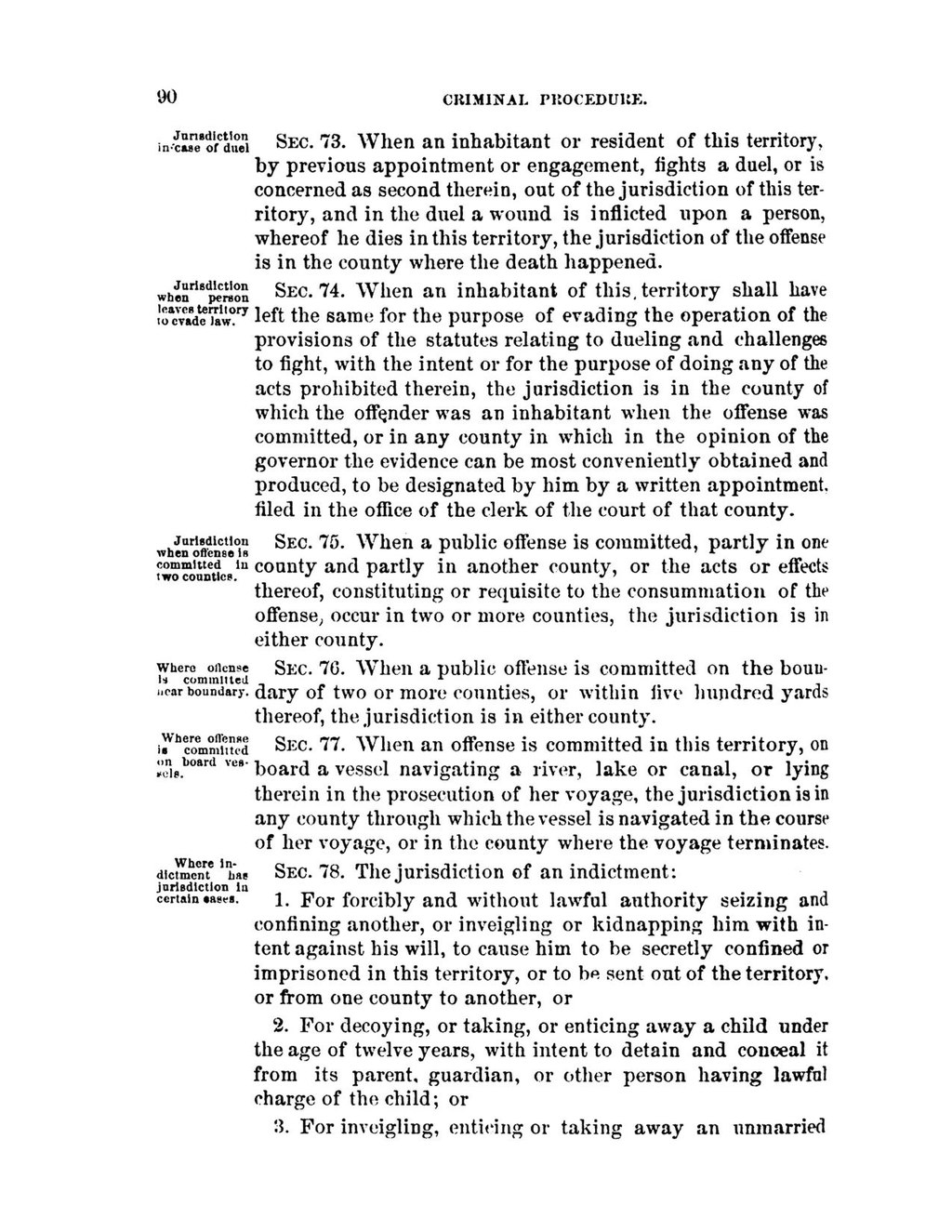Sec. 73. When an inhabitant or resident of this territory, by previous appointment or engagement, fights a duel, or is concerned as second therein, out of the jurisdiction of this territory, and in the duel a wound is inflicted upon a person, whereof he dies in this territory, the jurisdiction of the offense is in the county where the death happened.
Sec. 74. When an inhabitant of this, territory shall have left the same for the purpose of evading the operation of the provisions of the statutes relating to dueling and challenges to fight, with the intent or for the purpose of doing any of the acts prohibited therein, the jurisdiction is in the county of which the offender was an inhabitant when the offense was committed, or in any county in which in the opinion of the governor the evidence can be most conveniently obtained and produced, to be designated by him by a written appointment, filed in the office of the clerk of the court of that county.
Sec. 75. When a public offense is committed, partly in one county and partly in another county, or the acts or effects thereof, constituting or requisite to the consummation of the offense, occur in two or more counties, the jurisdiction is in either county.
Sec. 76. When a public offense is committed on the boundary of two or more counties, or within five hundred yards thereof, the jurisdiction is in either county.
Sec. 77. When an offense is committed in this territory, on board a vessel navigating a river, lake or canal, or lying therein in the prosecution of her voyage, the jurisdiction is in any county through which the vessel is navigated in the course of her voyage, or in the county where the voyage terminates.
Sec. 78. The jurisdiction of an indictment:
1. For forcibly and without lawful authority seizing and confining another, or inveigling or kidnapping him with intent against his will, to cause him to be secretly confined or imprisoned in this territory, or to be sent out of the territory, or from one county to another, or
2. For decoying, or taking, or enticing away a child under the age of twelve years, with intent to detain and conceal it from its parent, guardian, or other person having lawful charge of the child; or
3. For inveigling, enticing or taking away an unmarried
